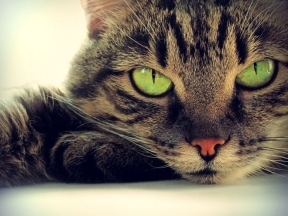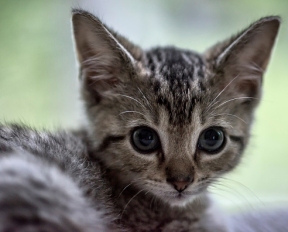
Rats—animals known for spreading disease—continue to plague cities like Chicago and New York, so residents and exterminators are finding more creative ways to stop outbreaks, CNN reports. The most effective method to date: feral cats. Chicago, which has had an upsurge in rat complaints over the past year, has put this tactic to work—with great results. While stuffing poison and newspapers in rat holes can help, feral cats have essentially proved to be 100 percent effective in eliminating the problem.
Case in point: Victoria Thomas from Lake View, a Chicago suburb, had about 400 rats in her backyard, but thanks to the three feral cats she adopted her backyard is now rat-free. Many fellow Chicagoans are following suit. Rats pose several health concerns. They spread diseases like the bubonic plague, but rats also carry less infamous, though no less scary, diseases like antibiotic-resistant E. coli and C. diff. These can be spread through rat bites, urine and feces. Plus, their easily shed fur, which can also transmit disease, can get into ventilation systems.

A study done in a Vancouver neighborhood with a high rate of MRSA cases showed that the same MRSA strain was found in humans and rats, proving the vermin are helping to spread the disease. However, while cats do kill some of the rats, it’s often their scent that wards off the rats. As a result, there is some concern that rats are relocating, instead of being exterminated. But this doesn’t seem to be deterring people from using cats—the Chicago nonprofit Tree House Humane Society’s Cats at Work program now has a 30-day waiting list.
Each cat typically costs around $200, but buyers aren’t gaining a new house pet. Feral cats are often born in the wilderness and haven’t been exposed to humans for a significant amount of time. It takes about four weeks for the cats to acclimate to the territory, but the scent of the cats often immediately causes rats to flee. This year, 160 cats have been placed, which is double the number that was placed last year.










